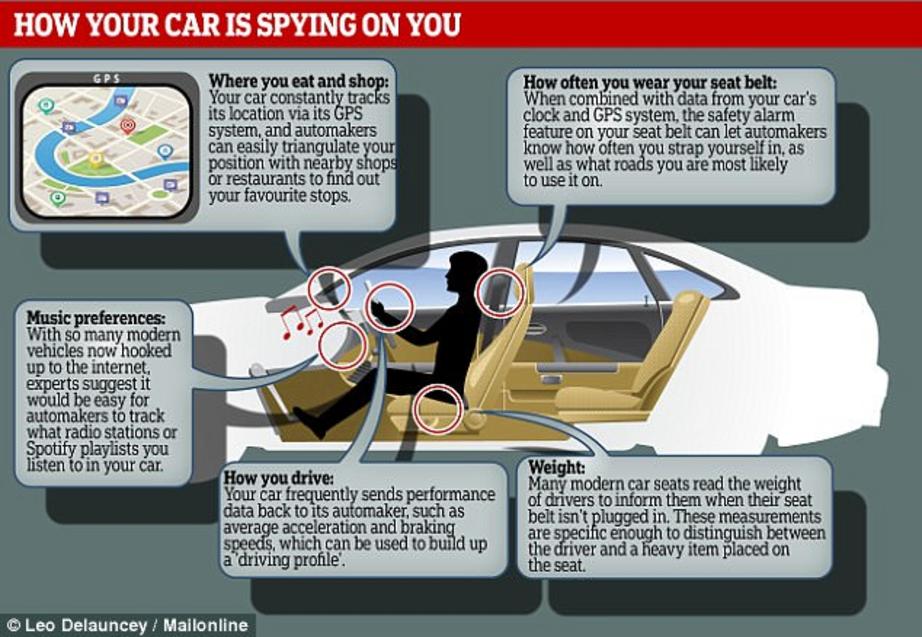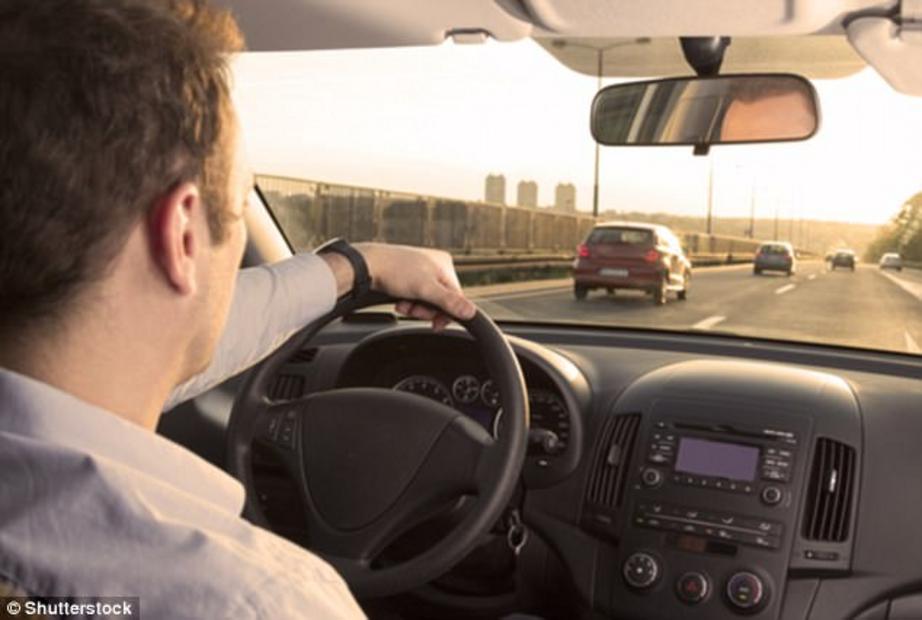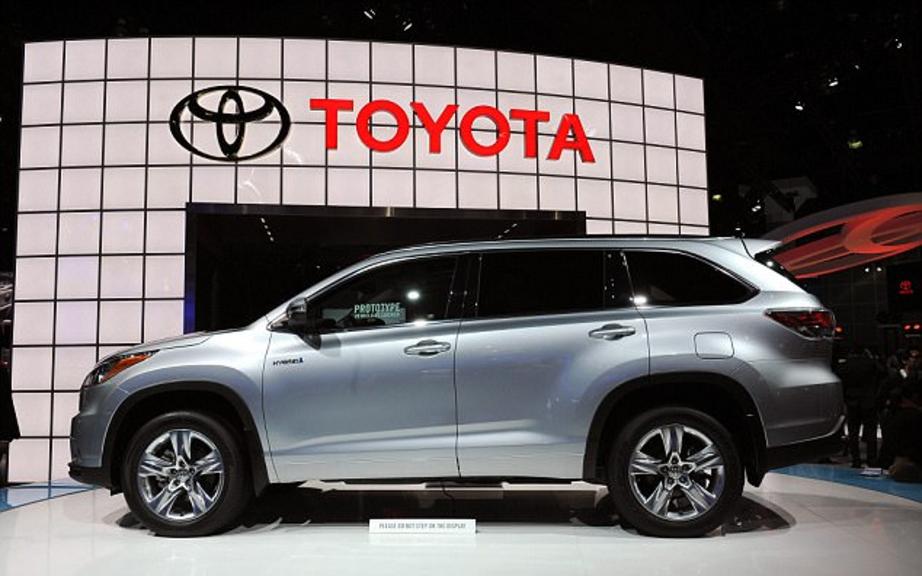How your car is spying on you
Experts reveal how automakers can track everything from your weight to the food you eat using in-built sensors.
Experts have revealed the myriad ways that your car can spy on your personal habits.
Automakers track your vehicle's location, how fast you drive, what entertainment you listen to, through internet-connected systems in modern cars.
Newer cars can even record a driver’s eye movements, the weight of people in the front seats, the weather on your street, and where you prefer to eat.
Companies use personal information collected from tens of millions of vehicles around the globe - and many keep tight-lipped about what they use the data for.

Modern cars collect the personal information of millions of people around the globe using in-built sensors. Automakers could track your weight, where you eat and shop, how you use your seat belt, and your music preferences through your car's computer software
Some privacy experts say modern cars collect enough data about drivers that profiles as unique as fingerprints could be developed, which could then be sold to marketing firms.
Specifically, a vehicle's location data poses the greatest risk to customers and their privacy, according to Pam Dixon, executive director of the World Privacy Forum.
Ms Dixon told the Washington Post: 'Most people don't realise how deeply ingrained their habits are and how where we park our car on a regular basis can tell someone many things about us.
'There's a load of anti-fraud companies and law enforcement agencies that would love to purchase this data, which can reveal our most intimate habits.'
There are around 78 million cars on the road connected to the internet in some way, according to ABI Research.
Within the next three years, 98 per cent of new cars sold in Europe and the United States will be connected, according to the technology research firm Gartner.

Experts have revealed the myriad ways that your car spies on your personal habits. Automakers track your vehicle's location, how fast you drive, what entertainment you listen to, and more through internet-connected systems in modern cars (stock image)
HOW YOUR CAR SPIES ON YOU
Modern cars collect the personal information of millions of people around the globe using in-built sensors.
Automakers say the data helps improve safety and performance, but some firms also sell them to third-party companies for marketing or research.
Weight: Many modern car seats read the weight of drivers to inform them when their seat belt isn't plugged in. These measurements are specific enough to distinguish between the driver and a heavy item placed on the seat.
How often you wear your seat belt: When combined with data from your car's clock and GPS system, the safety alarm feature on your seat belt can let automakers know how often you strap yourself in, as well as what roads you are most likely to use it on.
Where you eat and shop: Your car constantly tracks its location via its GPS system, and automakers can easily triangulate your position with nearby shops or restaurants to find out your favourite stops.
Music preferences: With so many modern vehicles now hooked up to the internet, experts suggest it would be easy for automakers to track what radio stations or Spotify playlists you listen to in your car.
How you drive: Your car frequently sends performance data back to its automaker, such as average acceleration and braking speeds, which can be used to build up a 'driving profile'.

Your automobile can tell automakers where you eat and shop, how often you put on your seat belt, and the weather on your street. Companies use personal information collected from tens of millions of vehicles around the globe
Lisa Joy Rosner, chief marketing officer of Otonomo, a company that sells connected-car data, said: 'The thing that car manufacturers realise now is that they're not only hardware companies anymore - they're software companies.
'The first space shuttle contained 500,000 lines of software code, but compare that to Ford's projection that by 2020 their vehicles will contain 100 million lines of code.'
Car companies claim the data they collect is used to improve performance and safety, and argue that no data is shared with third parties without permission.
Legal experts claim that, while car companies are required by law to acquire customers' consent before sharing information, more legislature is needed to protect consumers as technology advances.

A 2014 report from the US Government Accountability Office found that several major GPS manufacturers and automakers, including Toyota, were collecting data about drivers' whereabouts
IS YOUR CAR SPYING ON YOU?
A 2014 report from the US Government Accountability Office found that several major automakers and GPS manufacturers were collecting data about drivers' whereabouts.
The information was gathered from on-board navigation systems, and was kept by the firms for varying lengths of time.
The report focused on the big three Detroit automakers, Toyota, Honda and Nissan, as well as GPS manufacturers Garmin and TomTom, and app developers Google Maps and Telenav.
According to the report, the companies 'track where consumers are, which can in turn be used to steal their identity, stalk them or monitor them without their knowledge.
'In addition, location data can be used to infer other sensitive information about individuals such as their religious affiliation or political activities.'
Dr Ryan Calo, an associate professor of law at the University of Washington, said: 'Not only are automakers collecting a lot of data, they don't have a particular regime that is regulating how they do it.
'Any company that has tons of data about consumers and can control the interaction with them is going to have the capability and incentive to try to use that information to the company's advantage - and possibly to the detriment of consumers. It's almost unavoidable.'
A 2014 report from the US Government Accountability Office found that several major automakers and GPS manufacturers were collecting data about drivers' whereabouts.
The information was gathered from on-board navigation systems, and was kept by the firms for varying lengths of time.
The report focused on the big three Detroit automakers, Toyota, Honda and Nissan, as well as GPS manufacturers Garmin and TomTom, and app developers Google Maps and Telenav.
According to the report, the companies 'track where consumers are, which can in turn be used to steal their identity, stalk them or monitor them without their knowledge.
'In addition, location data can be used to infer other sensitive information about individuals such as their religious affiliation or political activities.'
For full references please use source link below.

